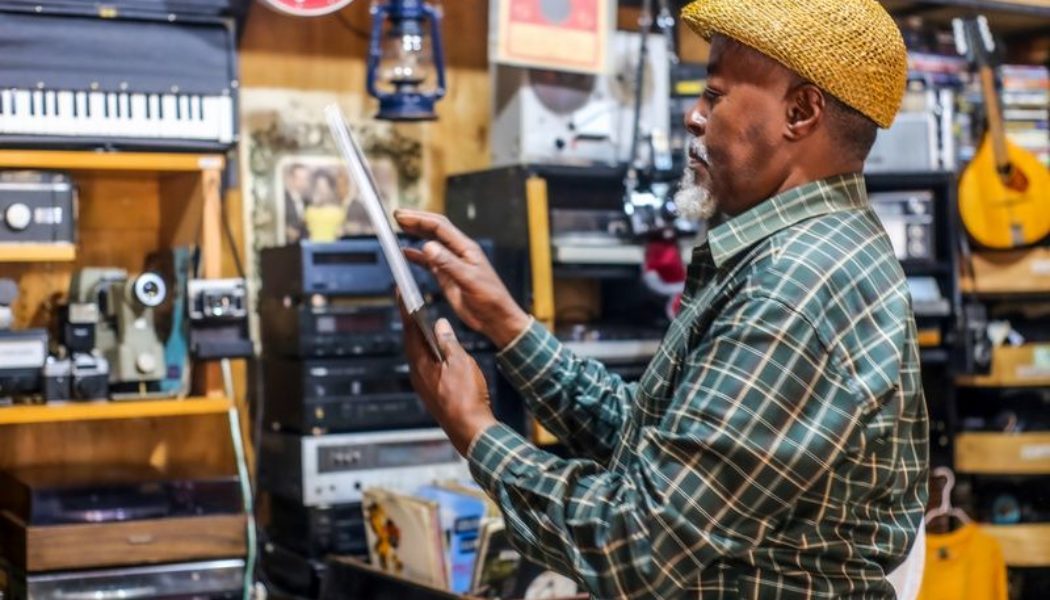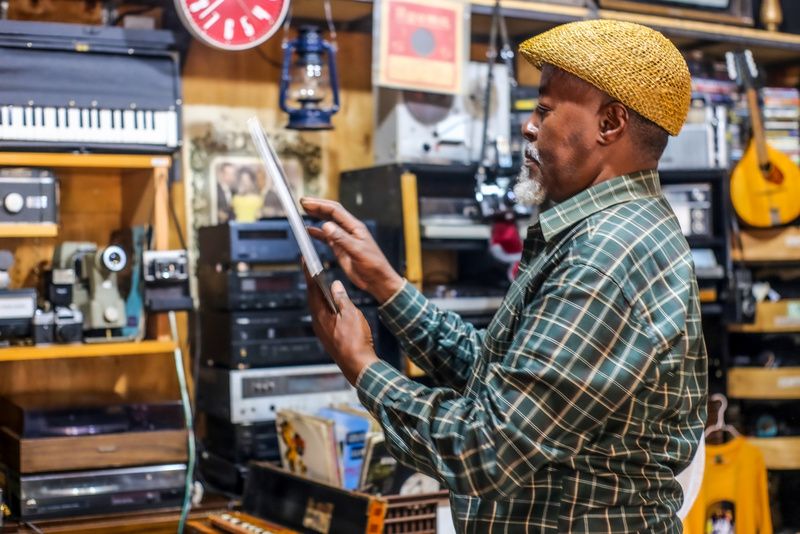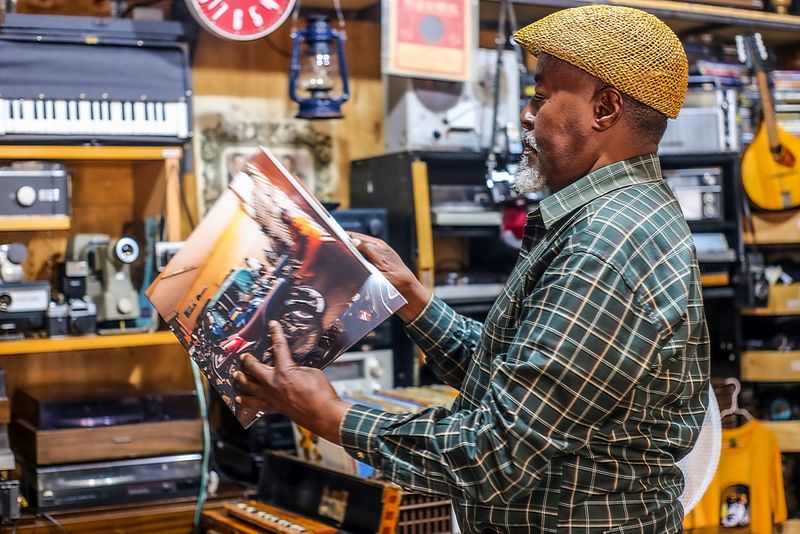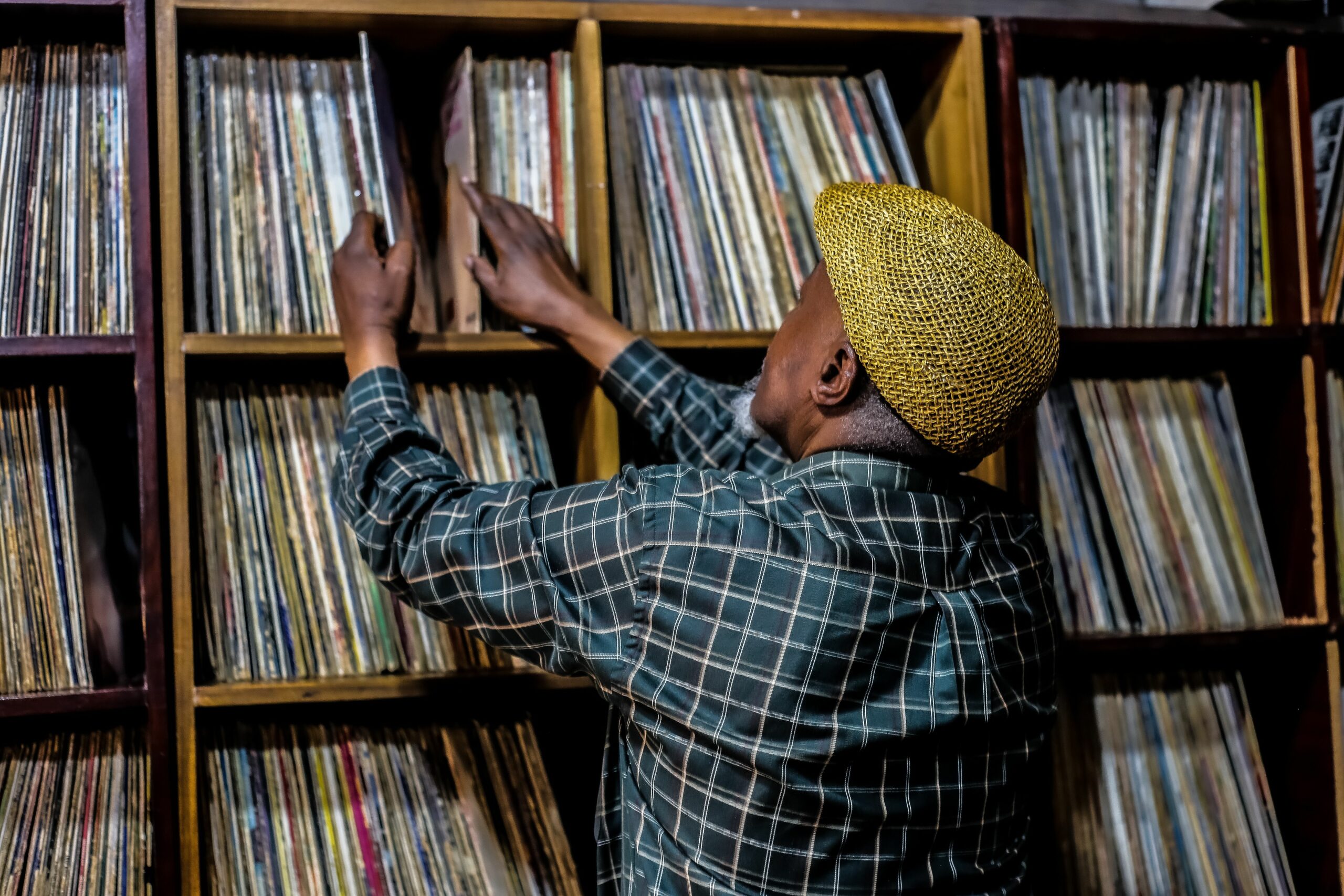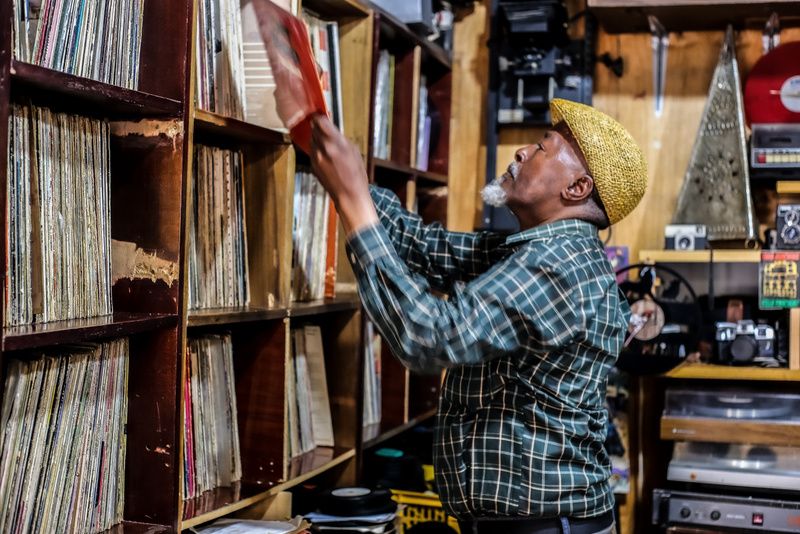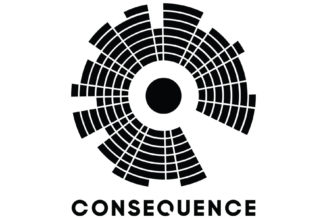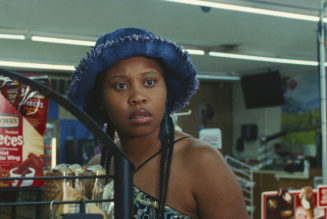“One of the beautiful aspects of vinyl is its ability to preserve cultural heritage. In Africa, vinyl has become more than just a medium for music; it has transformed into a cultural artefact,” proclaims James ‘Jimmy’ Rugami, from amongst the hundreds of vinyl records on display in his market stall in Nairobi.
“People are rediscovering old recordings of traditional music, reconnecting with their heritage, and finding a sense of pride in their identity.”
Rugami should know; he has been selling vinyl to a mostly African audience for over 30 years.
Located in the bustling Kenyatta Market in Nairobi, Rugami occupies a modest stall sandwiched between butchers, second-hand clothes vendors, and hairdressers clamouring for attention.
Since he opened it in 1989, Rugami’s stall number B-15 has attracted both local buyers and tourists with its array of colourful vinyl record covers and analogue electronics.
What hits differently about the music emanating from the store are the crackling notes and soulful melodies of “golden oldies” records that weave an enchanting spell over the young and old.
“There’s something truly enchanting about holding a vinyl record in your hands. Each record tells a story, and I take great delight in carefully inspecting every groove and appreciating the craftsmanship that went into its creation,” explained the former DJ.
The enthusiasm he exhibits for vinyl records is infectious. He becomes animated as he shares his passion, his eyes lighting up. He carefully handles each record, tracing the edges delicately with his fingers and admiring the intricate artwork on the cover.
“It’s a tangible connection to the past. When I listen to the crackling sounds and warm melodies, I feel transported to a different era, where music was savoured and cherished. There’s a depth and richness to vinyl that can’t be replicated,” he explained.
When Rugami ventured into the trade, vinyl was the dominant format. Fast forward to 2023, and streaming dominates the African music market, with young listeners hardly aware of music’s history of vinyl records, cassettes, compact discs, and flash drives.
Rugami, in his sixties, believes that vinyl has proven its resilience time and time again despite the rise of digital formats, thanks to the unique sound it produces.
“The future holds great potential. We’re witnessing a new generation embrace vinyl, appreciating its authenticity and connection to music. As long as there are passionate collectors and music lovers, the spirit of vinyl will remain alive,” he said.
While the internet has provided an opportunity for music’s latest distribution and playback means—streaming—it has also offered leverage for further sales of vinyl records, making the market far more transparent and accessible, according to Rugami.
“I don’t look for records; the records find me. I can connect with sellers and collectors from across the globe, discovering rare records that I could only dream of finding before. It’s a treasure trove of musical exploration right at my fingertips,” he said.
According to research firm Market Insights, the global vinyl record market was worth US$1.7 billion in 2022 and is expected to reach US$2.8 billion by 2029, an annual growth rate of almost 10 per cent.
In Africa, countries including Egypt, Nigeria, and South Africa have been identified as regions experiencing a higher revival rate for vinyl records.
Through vinyl, according to Rugami, the continent is witnessing the resurgence of traditional African sounds and the rise of contemporary artists embracing their roots.
On social media platforms like Facebook, collectors and enthusiasts are opening dedicated pages that bring them together to share their finds and expand their knowledge of this medium.
Local artists are also releasing their music on vinyl, embracing the format’s distinct warmth and resonance.
“It’s a collaborative movement that celebrates Africa’s musical heritage while pushing boundaries with innovative sounds,” said Rugami.
According to Bereket Stefanos, a 30-year-old vinyl enthusiast and a regular customer at stall B-15, vinyl “has become more than just a trend; it’s a way to connect with music at a deeper level.”
“Younger generations are embracing vinyl, and artists are responding by releasing their music in this format. It’s a beautiful symbiotic relationship, fueling the music industry’s growth and vinyl culture,” he added.
Bereket is among many who grew up seeing their parents or older siblings with vinyl collections, and he is yearning to experience that same connection. He regularly gathers with friends to exchange music recommendations and participate in vinyl listening parties.
“Vinyl allows us to bridge the gap between the digital era and the past, to touch and interact with music more authentically,” he explained.
It is this renewed appreciation for cultural heritage and the rich musical traditions of Africa that Rugami says is giving Vinyl records a new lease on life despite the never-ending challenges, especially with consistently changing music consumption forms.
“The vinyl revival in Africa will continue to gain momentum. I believe that vinyl’s future in Africa is bright. It can unite communities, ignite conversations, and preserve our musical heritage,” he said.
Story/Photo Credit: Owen Konzolo for bird story agency
